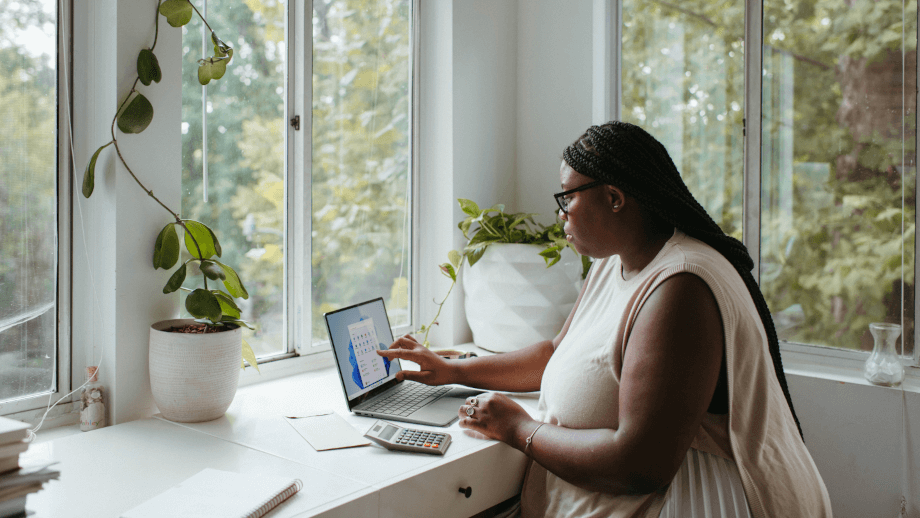21 Ways to Save Money on Your Home Insurance

Just because we sell home insurance, we still understand that you don’t want to pay any more for this vital protection for your home than you need to. So, we’ve compiled a practical list of ways you keep the cost of your premium down.
Our recent research shows that:
- Fewer than 1 in 5 adults in the UK (19%) read and understood their current home insurance policy before purchasing it
- 8% of UK adults only consider price when comparing and assessing their coverage options
- Only 1 in 10 Brits believe that they are covered for more than they need – Only 10% are confident they know their property rebuild cost, and only 15% think they know the value of their belongings
Our Chief Customer Officer David Joyson says:
“With increased living costs, it is natural that households are looking to cut back on spending where possible, and insurance is one area where savings can be made.
“It’s a good idea to shop around to get the best possible price, but it’s also vital to answer questions accurately when you take out a policy and check what is and isn’t covered before purchasing.
“In the long run, choosing the wrong home insurance policy could leave you significantly out of pocket should something happen that you are not suitably covered for, so it’s important to do your research.”
Choosing the right policy
1. Don’t just buy insurance from your mortgage provider or bank. You can buy home insurance from any provider, no matter who you get your mortgage from. Home insurance from an independent provider may save you money and could offer coverage tailored to your needs, particularly if you have a “non-standard” property, or any other unusual circumstances.
2. Combining your buildings and contents cover in one policy is usually less expensive than buying two separate policies. Opting for this not only tends to be more cost-effective, but also simplifies your coverage management.
3. Don’t buy additional cover options unless you really want or need the extra protection they provide. Don’t buy extra cover options unless you think you might need them. But obviously, if you’ve got kids charging through the house, or you’re a regular DIYer, accidental damage cover might be worth it. Equally, if you have a lot of expensive items that you regularly take outside your home, such as an iPad or a Rolex watch, paying a bit extra to specify these items for cover against theft and physical damage would be a good idea too. But if not, deselect it.
4. Calculate the property rebuild cost accurately using the BCIS Rebuild calculator for homes built with brick or stone walls and tile or slate roofs. If your home is made of any other materials, or it was built before 1850, or it’s a listed building, you need to ask a chartered surveyor to calculate an accurate rebuild cost for you every few years. If you give too high a rebuild cost when you buy buildings insurance, your premium could be higher than is necessary. (Note: if you under-insure the property, a claim might not be fully paid as your insurance provider may reduce the payout in proportion to the amount you were under-insured.)
The BCIS calculator provides an estimate of the cost of rebuilding common property types within the UK. The estimates are based on examples of properties with different criteria, using standard building methods, but the rebuild costs of similar properties can still vary.
The calculator is built into our online quote journey. Start a quote now – it’s completely free and only takes 10 minutes on average to get your quote.
Please note that BCIS state that their calculator is not applicable in the following situations:
- If your property is not a house, flat, or bungalow
- If your property’s external walls are built using something other than brick, stone, or a combination of brick and timber
- If your property has a thatched roof
- If your property was built pre-1720
- If any part of your property is listed
5. Don’t over-estimate the value of your belongings. Take the time to calculate the replacement-as-new cost of each item in your home at today’s prices. The average value of a home’s contents is £51,000 in 2024 (Source: Confused). If you over-estimate the value of your contents, you might end up paying too much (although as with your buildings cover, if you under-insure your contents a claim payout might be reduced in proportion to the level you under-insure them for).
6. Pay annually. Paying annually usually works out cheaper in the long run. Please be aware that your credit score may affect your ability to opt to pay monthly.
7. Increase the voluntary excess. Increasing your voluntary excess can lower your insurance premiums, as long as you’re aware and prepared to cover the higher excess cost in the event of having to claim. You may want to consider setting aside the total excess amount in a savings account as a precaution.
8. Avoid double-insuring your gadgets! If you have phone insurance with your mobile phone provider, or warranty cover for laptops and tablets that covers theft or damage as well, then don’t insure these items on your home insurance policy too! Always try to claim on your gadget insurance policy before your home insurance policy, as this won’t affect the no claims bonus incorporated in your home insurance premium.
9. If you’re renewing your policy with the same provider, don’t insure things you’ve sold or disposed of during the year, especially if the items are high value or high risk such as laptops, mobile phones, bikes or jewellery. Taking them off the policy may reduce the premium.
10. If you have adult children who are living in halls at college or university, insure their belongings under your own contents insurance policy, rather than buying a separate student insurance policy.
11. Add cover for contents away from the home within your contents insurance rather than buying a separate travel insurance policy for short trips away in the UK.
12. Describe your occupation accurately because what you do can affect your premium as insurers see certain professions as higher risk. If you input the wrong job title, you may pay too much. For more information, visit our High Risk Occupation Home Insurance page.
Keep your property secure
Although the number of reported burglaries in the UK has fallen dramatically from 20 years ago, there were still 266,489 reported in 2023/2024 (Source: Statista). As claiming on your insurance usually reduces your no claims discount when you renew, do what you can to reduce the likelihood of your home being burgled by following these 12 handy tips.
13. Make sure that someone is at home overnight to deter night-time thieves. If you work night shifts and it’s not practical for someone else to be at home while you’re at work, then leave the bathroom light on while you’re out and use timer switches for lights and a radio in other rooms. The most convincing way to appear as though you’re at home is to buy a seven-day variable light switch timer so that your lights go on and off at different times every day.
14. Fit a burglar alarm to scare off any thieves targeting your home. If do this, it’s worth using a monitored alarm service so that you don’t have to deal with a burglar personally. Having a NSI, NACOSS, SSAIB or BSIA burglar alarm may decrease the premium cost. However, make sure you always set the alarm when you’re out so that you’re covered in the event of a claim. If your alarm system can be set up to “zone” the house into different areas, then all areas not in use overnight should also be alarmed before you go to bed. Don’t forget to change your alarm code regularly too!
15. Consider installing a gravel driveway and path up to your house as this deters thieves because the crunching noise of the gravel underfoot attracts neighbours’ attention.
16. Use a home security app to control lighting and heating from your smartphone when you’re out. You can switch lights on and off and give the impression that someone’s at home, which is handy if you’re going to be out during the hours of darkness.
17. Get the right quality of locks installed on all accessible doors. The locks on the main external doors in the property should conform to British Standard BS3621 to be eligible for a discount. Check the metal lock faceplate on the edge of the door to look for a kitemark and BS3621 printed on the plate. If you find these, then your door lock conforms to the British Standard.
To claim or not to claim
18. Only report claims that you know you are covered for and that you truly need to claim for, because any reported loss or damage is likely to be logged on your claims record even if you don’t actually progress the claim. All claims data is stored on a centralised database held by the Claims & Underwriting Exchange which is managed by Experian and accessed by insurance providers. This data is used to calculate the risk of something owned by you or your family being damaged, stolen or lost; if you have reported many of these types of events then the premiums will increase. Rather than phoning the insurance company to ask if you’re covered, a better way to assess whether it’s a good idea to claim, is to read the insurance provider’s policy booklet and your own individual policy schedule carefully. From this you will be able to identify whether you can claim for the incident or not.
19. Try not to make multiple claims. The longer you don’t make a claim for, the more likely it is that your premium stays low. Making several claims in a short period of time can have a significant effect on your premium as insurers consider you a higher risk. Some insurers offer a no claims discount which can be up to 50% on premiums after five years without any claims or claimable incidents.
20. Make regular home maintenance a priority. Keep your home in good condition by regularly inspecting the roof, gutters, plumbing, and electrical systems. Address issues like leaks, blockages, or faulty wiring as soon as possible to prevent costly damage from leaking water or fires.
Insulating water pipes on the outside of your building and in your loft helps prevent a frozen burst pipe claim in the cold winter months. Burst water pipes are a common and very expensive issue in the UK, particularly when the cold weather puts pressure on them.
While your insurance may cover water damage as a standard feature of building insurance, taking reasonable preventative measures like insulating pipes could reduce the risk of incidents.
According to Go.Compare, some insurance providers might refuse to pay out if your pipes aren’t insulated, and the average cost for a weather-related home insurance claim is around £9,000.
21. Read the policy information first. If you’re ever unsure of what insurance to get, read the information on what is and isn’t included carefully first. Whilst it’s great to be able to make a saving, it’s important to check you know what cover level you have, plus any exclusions or excesses, to make sure that it’s right for you.
Remember – check your policy, read the small print, and shop around to get the best – and most appropriate – d

Get a home insurance quote online
Get a quote online in less than 10 minutes*





